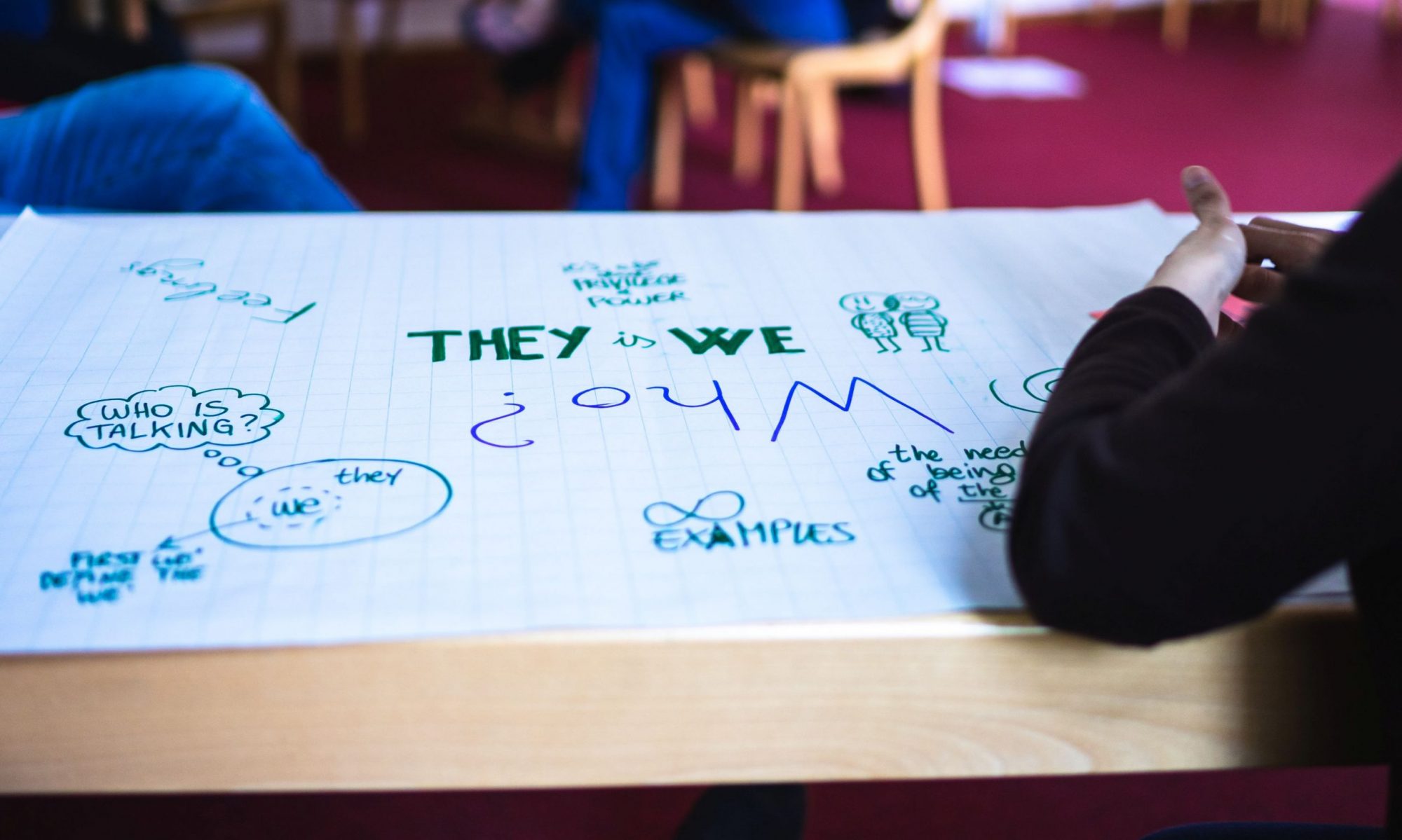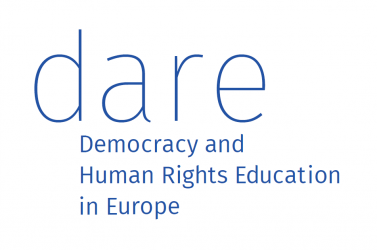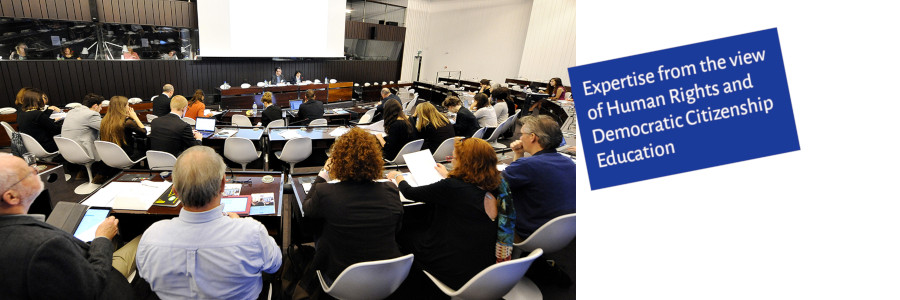Let us be more ambitious!
DARE networks board proposes to critically investigate the European Commissions proposal on “Rethinking Education: investing in skills for better socio-economic outcomes” which was published in November 2012 by the European Commission [COM(2012) 669 final].
We welcome the European Commissions´ vision on the Future of Eduation as a valuable contribution to the discussion – but we aim for a deeper reflection within the discussion in order to develop a common vision for the future. The communication issued by the EC is emphasizing strictly on “delivering the right skills for employment, increasing the efficiency and inclusiveness of our education and training institutions and working collaboratively with all relevant stakeholders” (p.2). No doubt – in the times of crises caused by the financial sector, we face in the countries suffering by the crisis multiple problems, among them rates of (youth) unemployment as one of the biggest challenges for European society. No doubt that more and better than is currently the case needs to be done in order to equip youth (and people affected by the crisis in general) with instruments to cope with the situation and go steps to recover. Nothing is worse than a situation where a political and economical system is not able to take care for the peoples´ needs.
The EC´s approach to set the focus more or less solely on formal education is a missed opportunity for a redefinition of education as envisaged. The approach to put the responsibility for coping with the outcomes of the economical downturn mostly on the shoulder of the individual citizens and rejecting any responsibility of the economical, social and ecological environment for the situation is cynical. To enforce solely the vocational skills of the learners and their employment skills in this regards will have no effect if there is no jobs.
The EC asks for world-class Vocational Education and Training. What is world class VET and in comparison to what? DARE points out that Europe already today is world-wide leading in Human Rights Education and Education for Democratic Citizenship. This is one of the fundaments for the success of economy and societies in Europe. This effort should not be risked nor lost!
The EC Communication points out on the success of countries leading in Vocational Education and Training. From the DARE network we want to indicate that these countries also have sound support for non-formal learning and include EDC/HRE programs in national curricula as well as offer support for non-formal learning.
A highly selective and competitive educational system inherently produces winners and losers. The European commission aims to reduce the rates of low performance but who will be the people losing in 2020 if the educational systems are highly competitive and selective and only about to produce overachievers?
Are streamlined curricula, standardized tests the right instruments to tackle underperformance or should we rather ask for tailor-made approaches fostered for the level learners on the educational grassroots level? Is a strict focus on STEM (science, technology, engineering and mathematics) enabling Europe for real sustainable, smooth and inclusive growth?
Lifelong learning (LLL) and civic competencies, building a core methodology of HRE/EDC, are essential for each individual in modern European, knowledge-based and democratic societies.
As dispositions of learning-to-learn skills and active citizenship shape up in childhood and adolescence, formal and non-formal education seen through the LLL- perspective can make a significant contribution to the enhancement of social and civic competencies as well as to employability skills of adult Europeans.
Eight key competencies, listed in the “Recommendation of the European Parliament and of the Council of 18th December 2006 on key competences for lifelong learning”, include among others (e.g. digital competence, cultural awareness and expression, learning-to-learn skills) also sense of initiative and entrepreneurship and social and civic competences. Both have to be seen as fundamental to equip individuals to participate actively in civic society.
DARE points out that Education for Human Rights and Democratic Citizenship over past decades, supported by numerous international, European and national HR instruments, developed modern and expert appreciated methods of addressing a range of vulnerable and marginalized groups of population (including social-economic disadvantaged, with less well-educated background, with employment difficulties), who are in need of empowerment and support to fulfill their educational potential.
The educational system of a democratic society should seek to support all its learners in their development of social and civic competences hand in hand with sense of initiative including entrepreneurship (on all levels of formal, non-formal, LLL and vocational education) in order to empower them to participate confidently in modern, heterogeneous, knowledge-based societies and contribute to development of socially responsible sustainable economy in Europe.
Whats good for the disadvantaged should also be taken into account for the ones that eat the fat of the land: Democratic Citizenship and Human Rights skills are also an educational goal for vast groups within privileged groups in society.
The European Commission asks for the development of transversal skills, such as the “ability to think critically, take initiative, problem solve and work collaboratively” further the communication asks the development of adequate tools for individual assessment of skills, particularly in the areas of problem solving, critical thinking, collaboration[…]. From the DARE network we know no better educational environment to learn these skills as the environment of non-formal Education for Democratic Citizenship and Human Rights Education, for active citizenship education, politische Bildung etd. We do not understand why the EC communication does not take these fields into account when the acquisition of these transversal skills is so important for the EU´s future. The EC loses an opportunity by not including the positive experiences of non-formal Education for Democracy and Human Rights as a basic field to acquire these competences!
Among the transversal skills the EC emphasizes especially entrepreneurial skills as desire for education. We have no doubt that among a lot of other fields it can be interesting to learn in school more about entrepreneurship, but one also has to admit that not all young people want to become entrepreneurs. We see it as crucially important to invest in this regard in sound EDC/HRE teaching all over Europe and contribute to the realization of the Council of Europe Charter on Education for democratic citizenship and human rights education. Entrepreneurial investments are made mostly in countries/regions where investors have no doubt about the rule of law and the security of investments. Risk and Forecast estimee for entrepreneurial investments largely depends on the estimation of stable and societies and an investment friendly climate. In this regard Citizenship skills and knowledge are a crucial desireable for any educational system that aims to support a prosperous smart and sustainable growth in Europe. Resulting from the crisis we face in many countries a streamlining of education and a roll-back of EDC/HRE from the formal educational system as currently happening in Spain. Also the political success of populist far right movements in several European states gives us alarming signals which are a clear risk for the stability of societies and the democratic model in Europe.
On the Funding Education aspect the EC lobbies for a model of cost sharing between different partners in the educational process – the state, businesses and individuals, foundations and alumni – with public investment to leverage private sector match-funding. We ask the EC kindly to provide examples of successful PPP´s in the educational field and to provide evidence of good experience which have proven to be successful in the long run. DARE points out that education is a public good and all members of society should have equal chances and access to any education offered. The EC is further asked to give evidence that PPP´s are capable to offer solutions which are in the long run guaranteeing open societies and a stable social climate.
DARE board,
August 2013
Learn more:
In Spring EUCIS-LLL organised two policy debates in the European Parliament echoing the 2012 release of the Commission’s Communication on “Rethinking Education”. The goal was to exchange views between various stakeholders and value some of EUCIS members’ good practices on key topics of the Communication. In May MEP Katarina Nevedalova (S&D) hosted the first event, named “Partnerships for LLL, an new idea?” and co-organised with the European Youth Forum (see the report). Participants notably discussed what sustainable coordination structures could mean to move towards concrete partnerships. In June MEP Heinz K. Becker (EPP) hosted the debate “Entrepreneurship skills: common understanding? Common expectations?”; one of the key messages was the need to agree and promote a broad understanding of the entrepreneurship competence. Read the full report.


